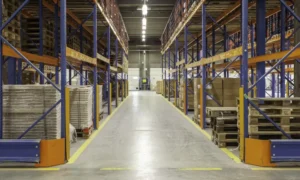Common Warning Signs of a Natural Gas Leak to Watch Out for

Millions of people across the nation use natural gas to help power their homes. From heating and cooking to generating a steady supply of hot water, natural gas can be used in many ways. Some even use it in their outdoor spaces for fuelling their fire pits and powering their outdoor kitchens. If you use natural gas in your home, it gives you the reassurance of having a steady and efficient fuel source for many of your household needs.
In most cases, natural gas is also a safe source of fuel for appliances and fixtures. Still, gas leaks and carbon monoxide poisoning can happen if your gas-powered appliances or the lines coming into your home become damaged or worn. You can keep a close watch for gas leaks by visiting premiersafety.com/rental/gas-monitors. Because of the potential risks, though, it’s important to understand the warning signs of gas and carbon monoxide leaks.
Follow Your Nose
Natural gas is actually an odourless substance. As such, you wouldn’t ordinarily be able to smell it leaking into your home and permeating the air your family breathes. Because of that, gas suppliers infuse it with an additive called mercaptan. This gives natural gas a sulfuric odour or makes it smell like rotten eggs so it’s more detectable. If you notice this type of smell in your home, it’s a sure-fire sign that you have a natural gas leak and need to take action as quickly as possible. Evacuating your home until the problem can be taken care of is advised.
Let Your Houseplants Be Your Guide
Quite a few people scoff at the idea of communicating with houseplants. Though they may not grow more quickly if you play music for them or develop bonds with their human caretakers, plants can actually speak to you if you know just how to listen. They’ll quickly tell you if something about their environment isn’t quite right.
Watch for wilting, brown or yellow spots on the leaves, and other indications of poor plant health. While these can be signs of malnutrition or too much or too little water, they can also clue you in to a gas leak. If you’ve given your plants the right amounts of everything they need and they still don’t seem to be thriving, a gas leak may be the cause of their failing health.
Watch for Unexplained Health Issues
Should anyone in your home begin to experience unusual health issues, those problems could stem from gas leaks as well. Some issues to watch out for include headaches, fatigue, nausea, dizziness, and breathing difficulties. All those symptoms coincide with a range of illnesses, but they can also be warning signs of gas leaks or carbon monoxide build-up.
Keep Your Home and Family Safe
Those are the primary indications of gas leaks and potentially dangerous levels of carbon monoxide in your home. Always be aware of your surroundings, and don’t ignore any of the common warning signs. Consider installing gas leak and carbon monoxide monitors in your home. At the same time, be sure to take action immediately if you suspect you may have a leak. It’s always better to be safe than sorry.




